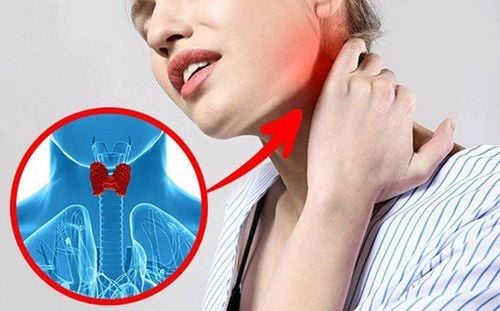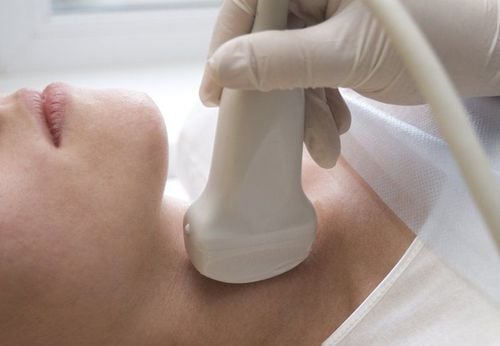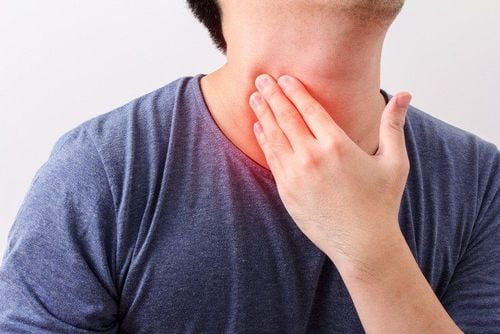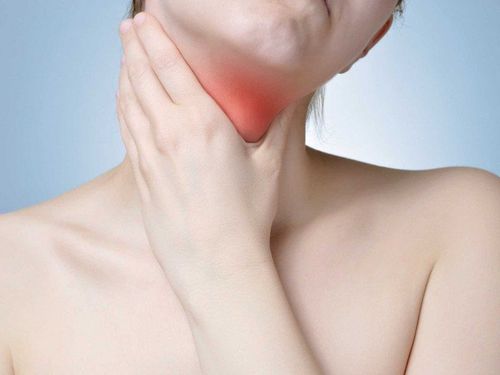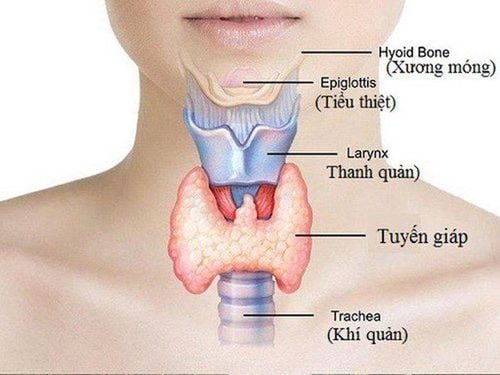This is an automatically translated article.
The thyroid gland is an important endocrine organ located in the front of the neck. This is the location where thyroid tumors and goiters often appear, including thyroid patients. If detected and treated promptly, thyroid patients give good results and prognosis. However, thyroid nodules form quietly and are difficult to detect.Thyroid nodules or nodular thyroid nodules are abnormal growths of thyroid cells that form a mass in the thyroid gland that changes the structure and endocrine function of the thyroid gland. Although the majority of thyroid nodules are benign (noncancerous). To diagnose and treat thyroid cancer in its earliest stages, most thyroid nodules need to be correctly diagnosed by a specialist. Here are some things patients need to know about thyroid nodules.
1. How do I know if I have a thyroid nodule?
Most patients with thyroid nodules have no clinical symptoms. When the thyroid nodule is too large, the patient can detect the nodule moving with swallowing rhythm or the nodule can be palpated. Therefore, patients should go for a thyroid ultrasound test if they want to know if they have a thyroid nodule or not.
2. I am very worried because I am afraid that the thyroid nodule is cancerous, what should I do to know for sure my disease?
Only measuring the results of pathology of thyroid cells can confirm for sure whether the thyroid nodule is cancerous or not. Therefore, when a patient has a thyroid nodule, an endocrinologist will advise the client to aspirate thyroid cells under ultrasound guidance for a definitive diagnosis.
3. Is the thyroid nodule aspiration procedure safe?
This procedure is quite safe and has few complications. At Vinmec International General Hospital, thyroid nodule aspiration is performed in a procedure room with strict infection control procedures. The endocrinologist will use the ultrasound machine to locate the high-risk malignancy so that the specimens can be sent to the pathologist to read the results. Usually, the patient needs to be aspirated 3-4 times to ensure enough specimen.
Like the technique of taking venous blood for testing, the procedure for aspiration thyroid nodules will cause mild pain and little bleeding at the aspiration site. In addition, the puncture site will bruise in some cases and clear up on its own after a few days.
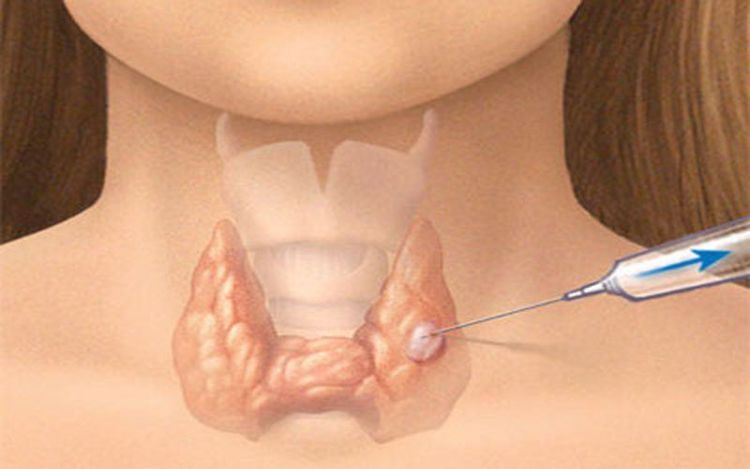
Thủ thuật chọc hút tế bào nhân tuyến giáp khá an toàn
4. Do I need more tests to diagnose the disease?
Ultrasound results only help patients detect thyroid patients. To fully evaluate this disease, customers need to do some more thyroid hormone tests to evaluate thyroid function such as FT4, TSH. These tests contribute to determining whether the tumor is hyperthyroid (thyrotoxic nodules) and safe for the procedure (hyperthyroidism is not safe for the procedure). .
5. Is there any oral medication to help shrink the thyroid nodule?
Currently, there are no functional foods or specific oral drugs to treat thyroid nodules.
According to the recommendations of the American Association of Clinical Endocrinologists, for benign thyroid nodules, tumor suppression therapy with levothyroxine is not recommended. Levothyroxine is only used in young patients with subclinical hypothyroidism or goiter with elevated TSH levels. Levothyroxine is also not recommended for the prevention of recurrence of thyroid nodules after surgery.
6. What cases need thyroidectomy?
Thyroidectomy is mandatory for all cases of thyroid cancer regardless of tumor size.
For benign thyroid nodules, thyroidectomy is considered when there are local manifestations of compression such as choking, dyspnoea, large nodules (usually >3 cm in diameter) and case on ultrasound suspected cancer but histopathological results showed benign cytology.
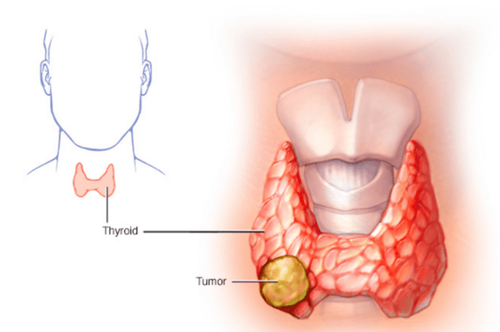
Bệnh nhân ung thư tuyến giáp cần phải phẫu thuật cắt nhân giáp
7. Are there alternative treatments if I have a benign thyroid nodule and do not want surgery?
Radiofrequency ablation of thyroid nodules has also shown good results for benign thyroid nodules. Some research results have shown that the tumor size can be reduced by 94% after 2 years of treatment with radiofrequency ablation. However, patients should note that radiofrequency ablation is only suitable for the treatment of benign thyroid nodules, not for thyroid cancer.
8. I have a thyroid nodule but no surgery. How do I properly monitor the disease?
Patients should re-examine, thyroid ultrasound, thyroid hormone test after 1 year. If tumor characteristics are unchanged from baseline, the patient should be re-examined after 2 years. If the mass has features suggestive of malignancy on sonography or clinical features suggestive of cancer such as hoarseness, loss of voice, cervical lymphadenopathy, firm mass, thyroid nodule aspiration should be repeated. . In addition, thyroid nodules should be indicated if the tumor volume is increased by more than 50%.
Vinmec International General Hospital is the address for examination, treatment and prevention of diseases, including endocrine diseases.. When performing the examination process at Vinmec, customers will be welcomed and using facilities, modern machinery system accompanied by perfect medical services under the guidance and advice of good doctors, well-trained both at home and abroad.
Accordingly, in order to improve the quality of examination and services, Vinmec has and is continuing to deploy a package of screening and screening for thyroid diseases. When using this service package, customers will get: Thyroid function test. Screening & early detection of common thyroid diseases such as simple goiter, hyperthyroidism, hypothyroidism, thyroiditis, thyroid nodules, thyroid cancer, etc. appropriate and timely treatment.
For advice and to register for an appointment, you can contact the nationwide Vinmec hospital and clinic system HERE.




